Entrepreneur of the Week: Issa Sidibé is shaping the future of agriculture in West Africa
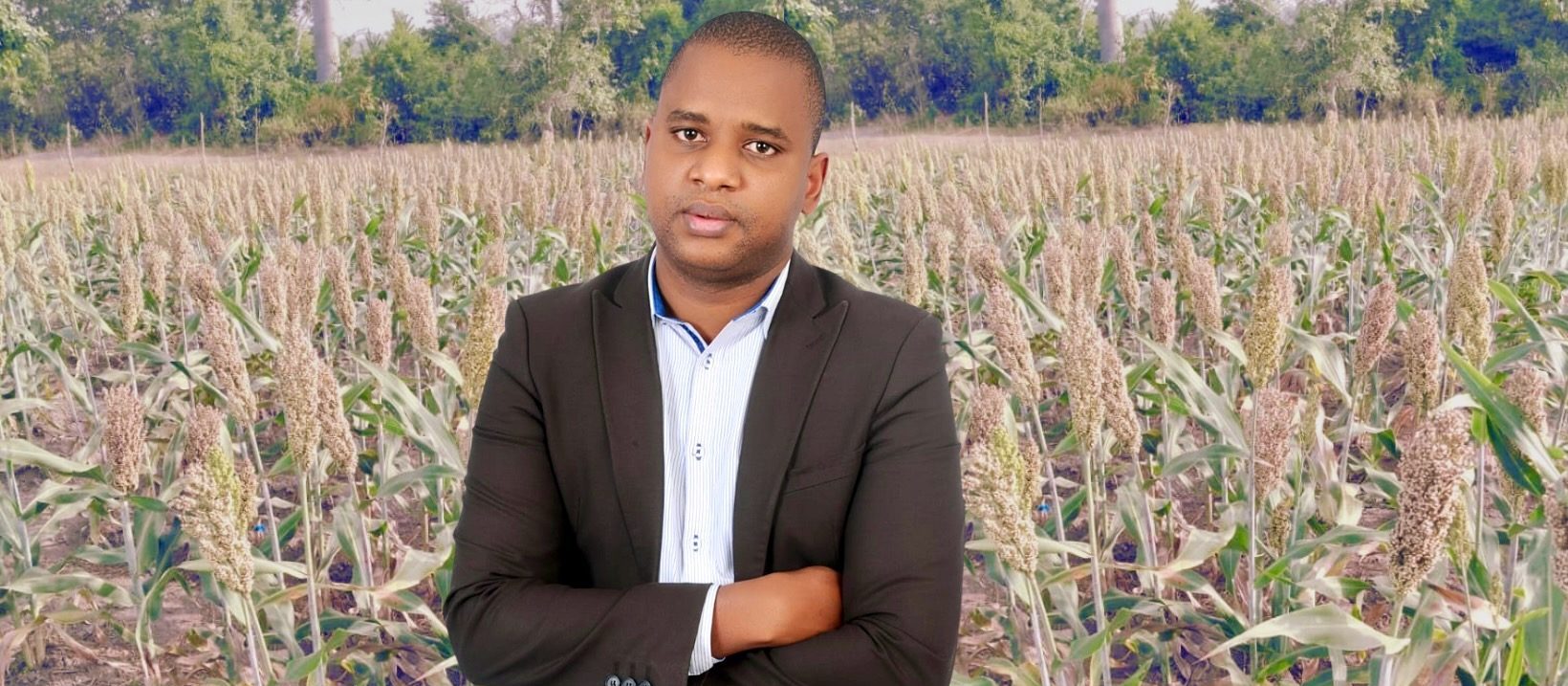
After a brilliant academic journey, Issa Sidibé (H.10) aspires to introduce high-yield and sustainable agricultural value chains in West Africa to address economic and demographic challenges.
Sidibé is a Peul name, a nomadic culture. It is to no surprise that Issa, always on the move, lives between Abidjan for business, the northern part of the country, where his family resides, and Yamoussoukro, the campus city where he now lives.
A land he first set foot on as a student engineer. ‘I come from a modest family, so my first instinct was to apply to L’École Polytechnique [a renown engineering school] after high school,’ he says. ‘Accommodation is provided and it remains the best social elevator locally.’ Admitted on merit after a baccalaureate in Abidjan, where his parents once met, he earned his mechanical engineering degree at the Institut National Polytechnique Houphouët-Boigny in Yamoussoukro in 2007.
He prepared for the HEC exam shortly after and still remembers the moment he received a positive response. ‘I was on an engineering internship in the cocoa industry when I heard the news: I wasn’t able to focus on work that day!’ He was granted a scholarship from the school after his arrival in France, as well as support from the NGO Benianh International Foundation and a scholarship from the Ivorian Ministry of Higher Education.
In addition to these grants, ‘I was able to reach the required funds thanks to support from the HEC community. Several HEC alumni, including the current Minister of Culture Françoise Remarck (E.04), Abou Kassam (H.74), the leader of the first Ivorian distributor Prosuma, and Benjamin Kouakou (H.94), who heads the investment fund Yeelen, contributed to financing my education.’
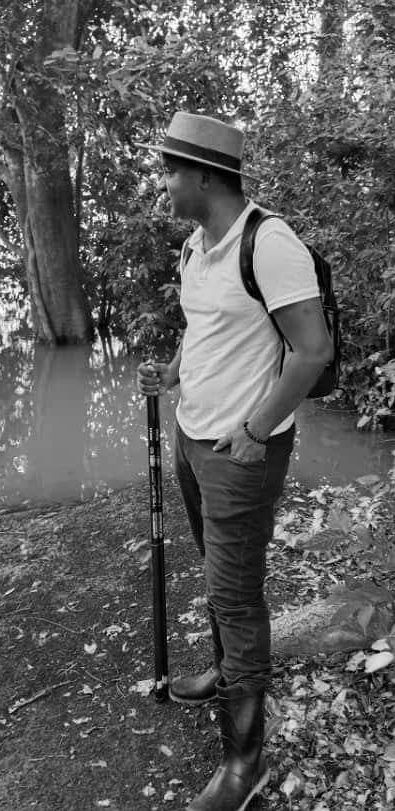
During his Master of Science program, he regularly hangs out iBoulogne – a suburban city adjacent to Paris – with his classmate Daouda Coulibaly (H.96), the current president of the HEC Chapter in Côte d’Ivoire, ‘because there was no one left on campus on weekends. It was a bit sad. There was only foreigners left.‘ He is also involved in several associations, such as Fleur de Bitume (Asphalt Flowers in French), where he mentors young students in council estates, and HEC Football Club.
Issa also chose to embark on an exchange program in Ahmedabad, India. ‘It allowed me to see what a country like Nigeria could expect in fifteen years if it reaches the same level of development. However, I found inequalities to be more noticeable over there. It is a two-speed country, with caste systems that are difficult to change.’ After three years as an analyst in consulting and banking with institutions like Société Générale Bank & Trust in Luxembourg, he begins a career in private equity with Cauris. An opportunity to return to Abidjan and immerse himself in the world of Ivorian SMEs.
‘Irrigating the country with funds’
His first entrepreneurial experience was in 2015 along with two alumni: Ange Pete (H.10) and Amos Ouattara (H.09). The trio launched the ‘Ivorian Uber,’ which they named TaxiJet. A concept that did not take off at the time. ‘It was too early for the market; smartphones were not yet widespread,’ he analyzes. ‘People didn’t want to pay for online services for fear that the vehicle wouldn’t come. We had to set up a call center to take orders, which was a bit cumbersome.’
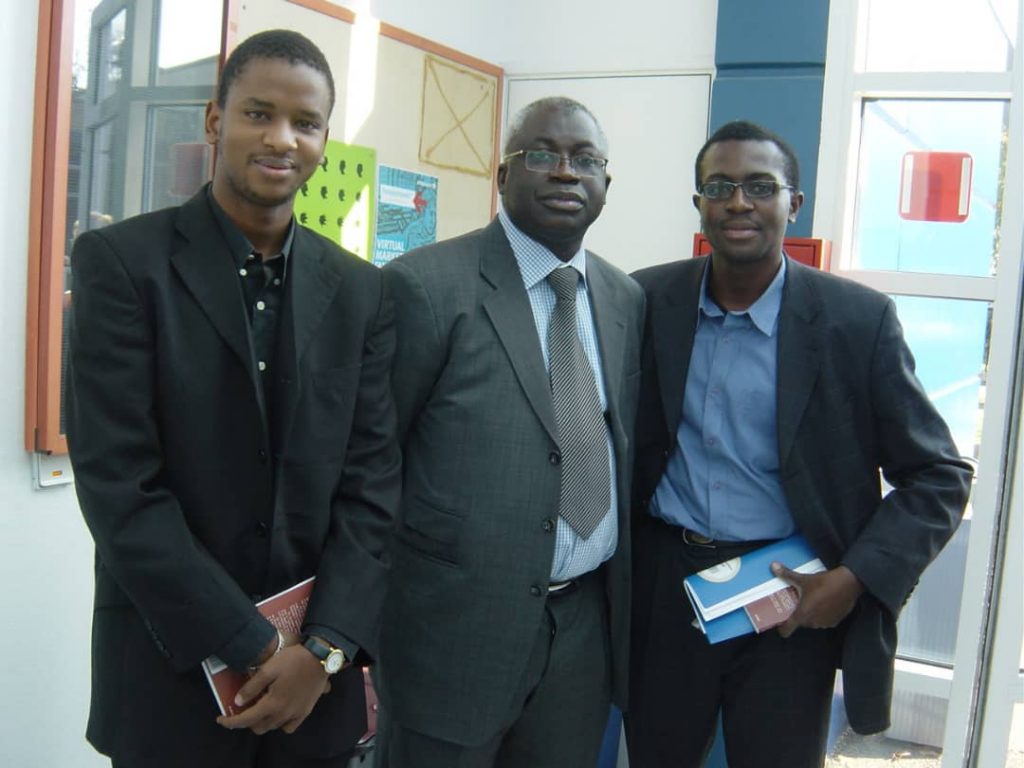
Issa Sidibé (H.10) upon his arrival at HEC in 2007, alongside his future partner Ange Pete (H.10) and an advisor from the Ministry of Economy of Côte d’Ivoire.
Ultimately, a meeting with I&P (Investor and Partners), a fund that invests heavily in Africa from Paris, lead him to agriculture. He partnered with the investor to create Comoé Capital, named after a river that run across Côte d’Ivoire. ‘We said we were going to irrigate the country with funds.’ from Abidjan, he funded projects in education, craftsmanship, health… And a company that produces dried mangoes, rekindling ‘an old passion.’ He then realized the country loses over a third of its mango production due to low processing and preservation capacity.
A fertile and well-irrigated land, self-sufficient in corn, Côte d’Ivoire is already the largest African producer of cocoa and cashews. ‘The first president, Félix Houphouët-Boigny, was passionate about agriculture,’ explains Issa. ‘Here, everyone you talk to will tell you that they have a small agricultural activity.’ Two-thirds of the country’s active population are farmers, but it is an aging population. The youth, however, is exploding. ‘A time bomb,’ says Issa Sidibé, who wants to limit costly imports, especially of rice.
The idea is to create a value chain from the seed to the processed product.
In partnership between Comoé Capital and GIZ (the German international development cooperation agency), Issa Sidibé has been implementing what he calls a ‘virtuous circle‘ since 2022. His ambition? To create and control sustainable agricultural value chains from A to Z, from seed to processing, while training young high-yield agriculture producers.
With his partners Daouda Coulibaly (through the family holding Rehobot) and his campus friend Ange Pete, he co-founded Neper Ventures, which he defines as ‘a studio dedicated to West African agriculture.’ This startup oversees Neper Farmers, the company that supports Ivorian agricultural producers, as well as a school, SupAgro Afrique.
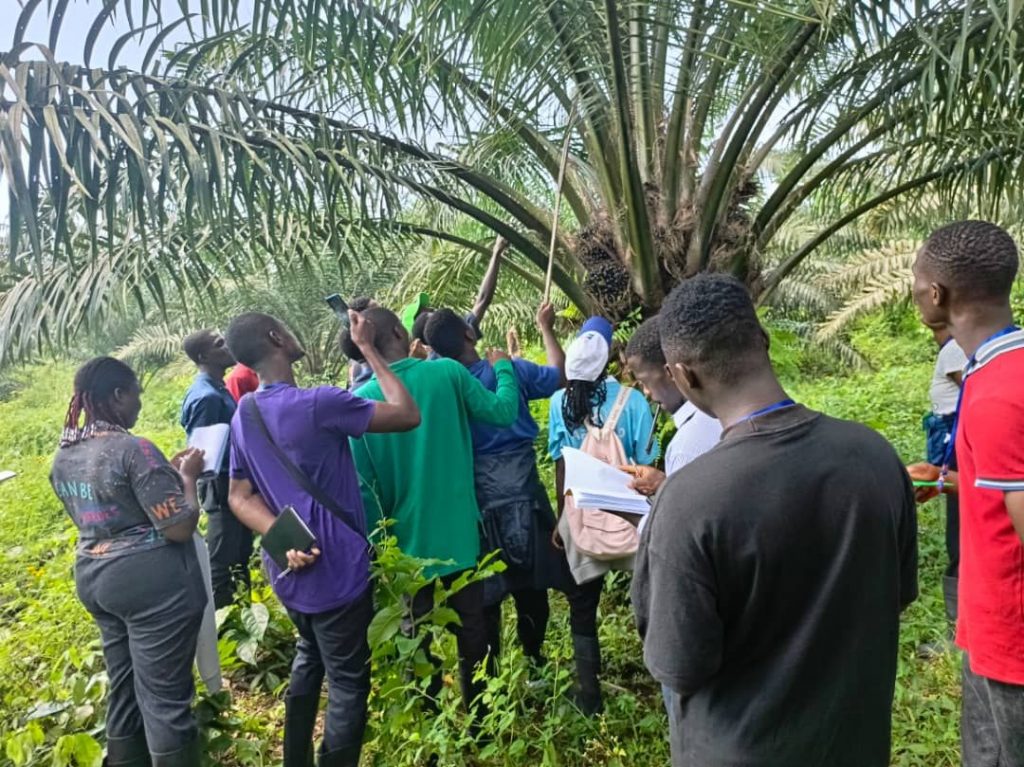
BTS students from SupAgro Afrique visiting oil palm producers in the Dabou region, Côte d’Ivoire, 2023.
To rejuvenate the agricultural population and spread expertise in high-yield agriculture, the entrepreneur chose to tackle the issue ‘upstream.’ ‘We have a very beautiful river, which passes 25 km from Yamoussoukro. We bought fallow land and built the school there,’ explains the entrepreneur. ‘We do all possible and imaginable tests there.’
Issa Sidibé meets seed producers and visits research centers in Côte d’Ivoire, Europe, Burkina Faso, Benin, and Mali, bringing back plant material to the school for research and development. ‘When the trial is conclusive, we test it in the fields, as we work with producer-seeders,’ explains the entrepreneur. ‘When it’s time, the selected seed is bought from these testers and redistributed to producers in the Neper Farmers network in Côte d’Ivoire and Burkina Faso.’
The seeds he refers to are non-hybrid. ‘We fight against hybrid seeds that create dependence on producers when they have low purchasing power,’ emphasizes the co-founder of Neper Ventures.
Soybean and sorghum
He boasts of introducing the sunflower sector in Côte d’Ivoire. ‘We also grow soybeans, sesame. We are currently testing sorghum, a cereal that grows in arid territory and requires 30% less water than corn.’ Seeking to improve yield on a given area with high-performance seeds is also a way to curb deforestation, which is wreaking havoc in Côte d’Ivoire. Highly scrutinized on oil palm production, the entrepreneur says he raises awareness on the topic at school.
A specific knowledge is thus imparted to current or future producers undergoing training at SupAgro Afrique. “The goal is to help them produce better and in larger quantities,” explains Issa Sidibé. With our company, Neper Farmers, we then buy their production to process it through a network of SMEs and market it. For example, soybeans are transformed into cattle cakes and sold for animal feed. The crude oil is sold to soap factories for soap production.’
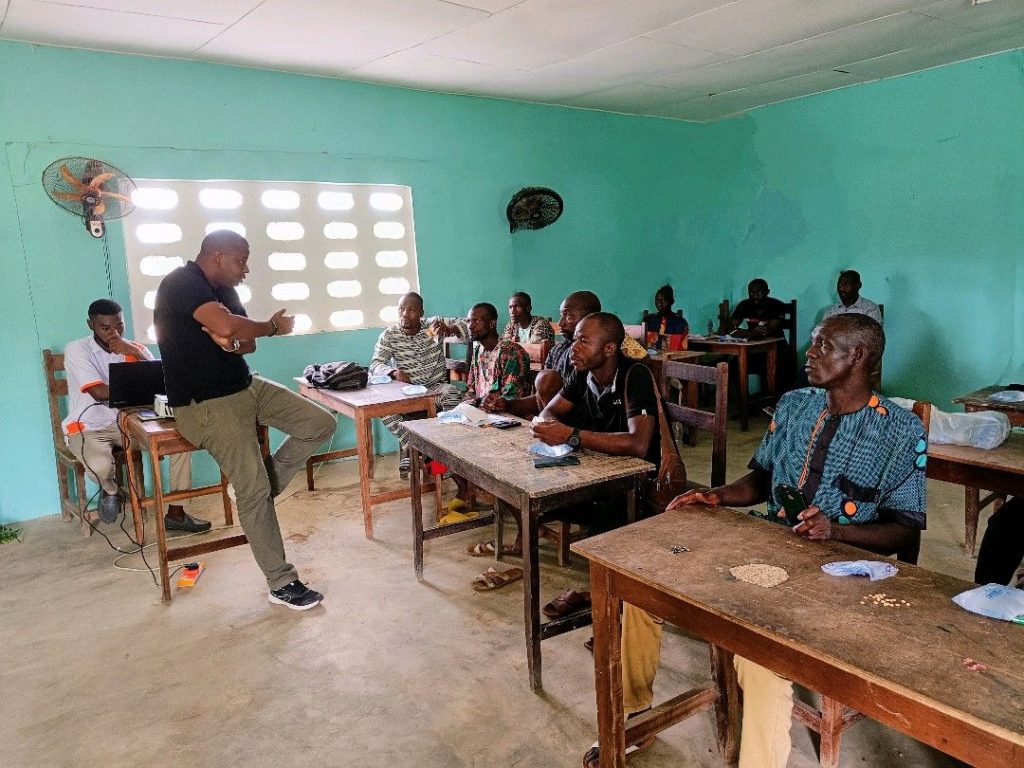
Issa Sidibé (H.10) addressing oilseed producers from the Neper Farmers network during a seminar in Yamoussoukro, Côte d’Ivoire, 2023.
The school itself is fee-based, with Neper Farmers offering study loans. These fees can be covered under specific programs. ‘Currently, we are training 1,500 young individuals for the World Bank and 250 young individuals for GIZ,’ Issa Sidibé enumerates, referring to global organizations that are also landlords. ‘In early 2023, we also trained 200 young individuals in oilseed production for the Ministry of Youth. The objective is to train and integrate 10,000 young individuals over five years through these various programs.
SupAgro Afrique offers a work / study training program in agriculture, a first in the country. ‘Two weeks at school, six weeks in the fields. Students also have access to conferences and online courses during planting periods.’ Once trained, they, in turn, are responsible for mentoring other producers.
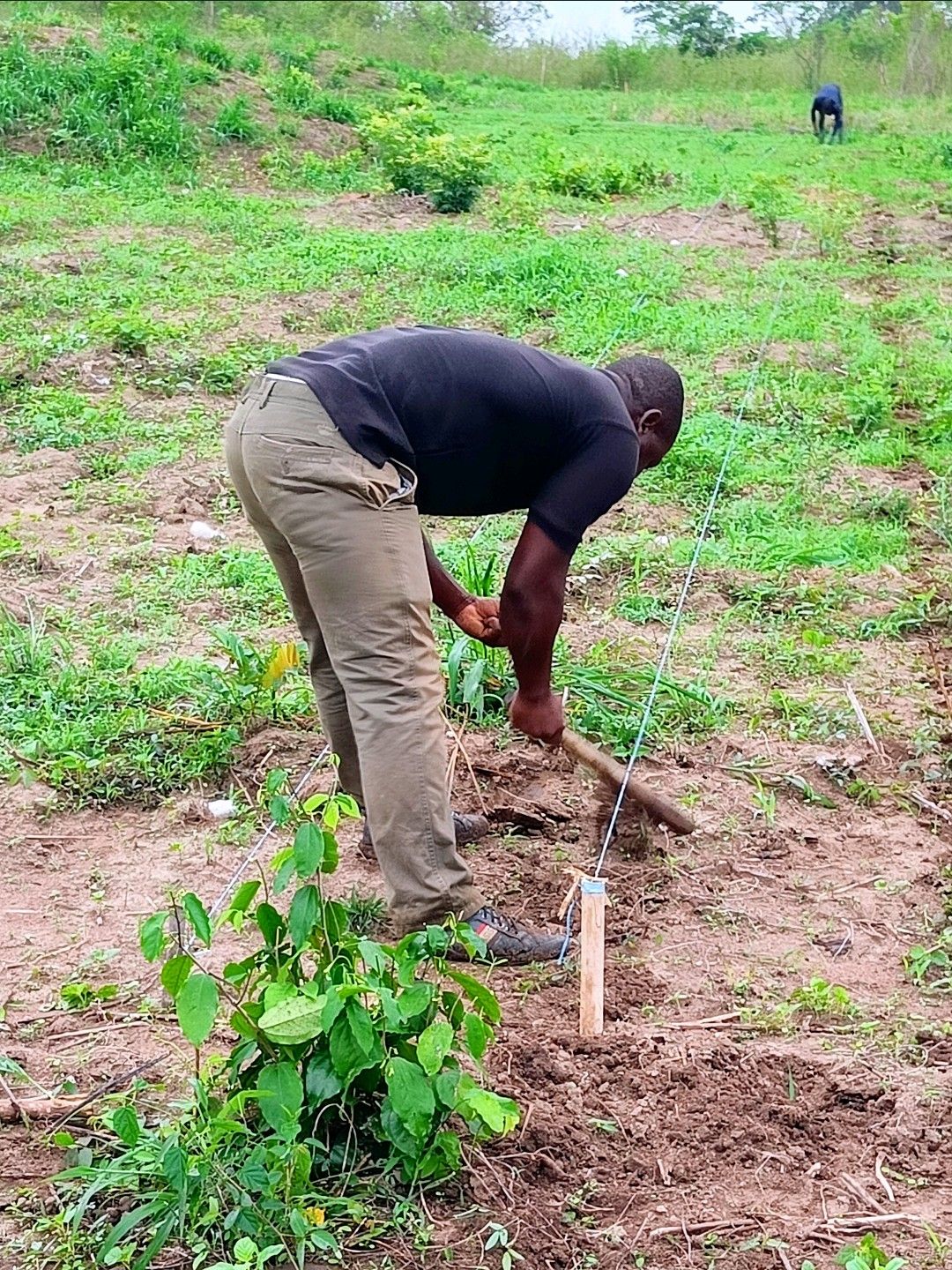
Special attention is given to recruiting women, with a dedicated scholarship. ‘Gender equiality is a significant issue in this sector. Women are not inclined to pursue agriculture. Therefore, they receive an automatic 50% scholarship.’ This initiative, funded by the Neper Foundation, has led to an increase from 4% to 29% in the representation of female students in the latest intake.
In two years, Neper Farmers has collaborated with 5,000 producers. ‘We are increasing their income, improving their level of training, and providing them with quality seeds and support.’ Almost the role a public institution would fill… Issa Sidibé, who said he has found ‘the right project‘ in life, is certain that ‘agriculture is the lever to change the country and contribute to addressing future demographic challenges.’
Published by La rédaction

